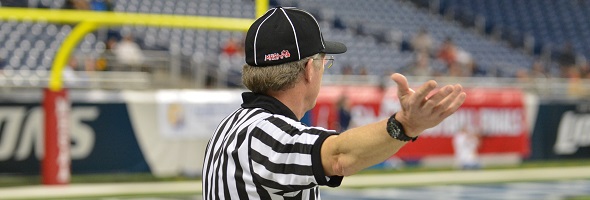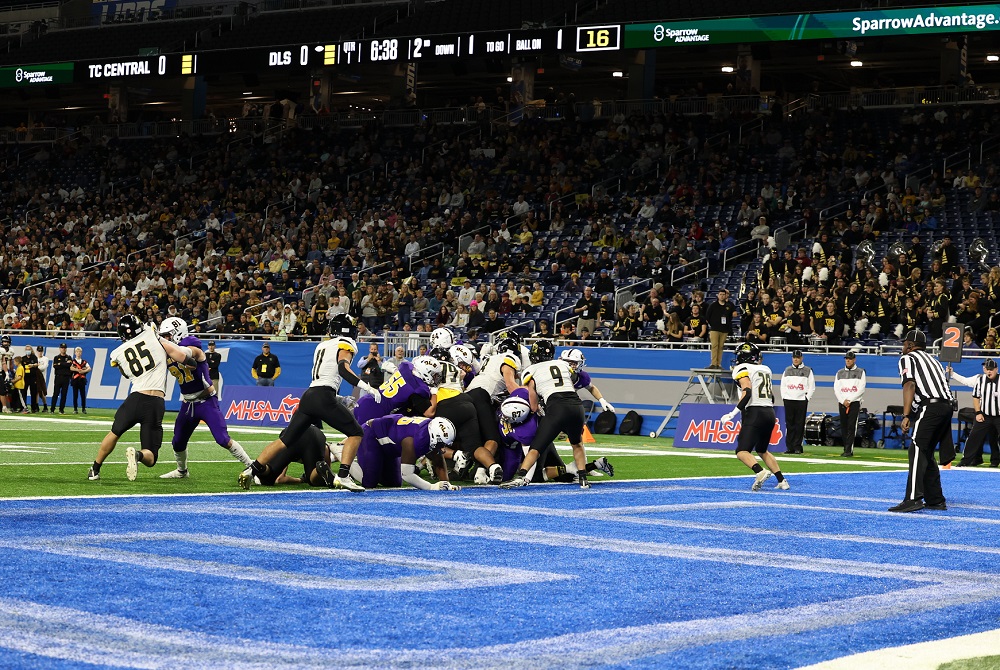
Be the Referee: Tackle Box
September 16, 2014
This week, MHSAA assistant director Mark Uyl discusses the differences between high school and college/NFL rules when it comes to a quarterback's movements within and outside the "tackle box."
"Be the Referee" is designed to help educate people on the rules of different sports, to help them better understand the art of officiating and to recruit officials. The segment can be heard on Mondays, Wednesdays and Fridays during the school year on The Drive With Jack Ebling on WVFN-AM, East Lansing.
Below is this week's segment - Tackle Box - Listen
Today we are going to talk about the rules that govern the quarterback, specifically when the quarterback is being rushed and is looking to throw the ball away and avoid the sack.
Under both pro and college rules, they have what’s called the tackle box. When the quarterback gets outside of the original position of the offensive tackles and throws the ball and it reaches the original line of scrimmage, there is never a foul for intentional grounding. However, under high school rules there is no such thing as a tackle box.
If the quarterback is either in pocket or scrambles outside of the pocket and now is trying to throw that ball away to avoid the sack, there always must be a receiver in the vicinity of the pass to avoid an intentional grounding foul.
Past editions
Aug. 25 - Targeting - Listen
Sept. 4 - Concussions - Listen
Sept. 11 - Pass Interference - Listen

Be The Referee: Play Clock
By
Sam Davis
MHSAA Director of Officials
August 30, 2022
Be The Referee is a series of short messages designed to help educate people on the rules of different sports, to help them better understand the art of officiating, and to recruit officials.
Below is this week's segment – Play Clock - Listen
There’s a new rule in football this year that provides the offense more time to draw up a play and prepare matchups when the defense commits a foul.
In the past, if the defense committed a foul, the play clock would be set to 25 seconds, potentially changing the approach by the offense entirely.
Under the change, when the defense or receiving team commits a foul, the play clock will start at 40 seconds, giving the offense an extra 15 seconds to prepare their scheme for the next play.
For all other administrative stoppages, including fouls against the offense or kicking team, the play clock will be set to 25 seconds when play resumes.
Previous Editions:
Aug. 23: Intentional Grounding Change - Listen

